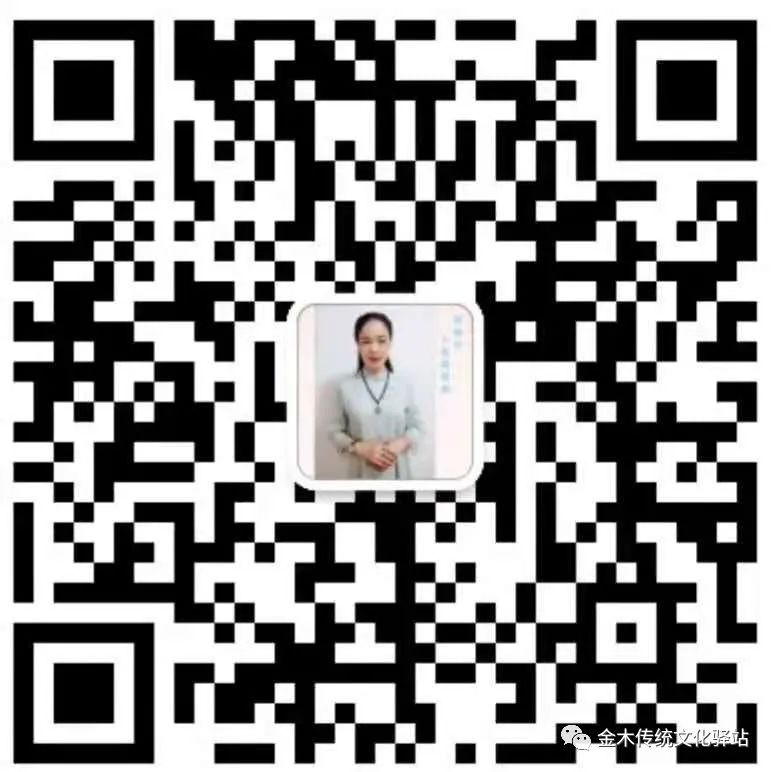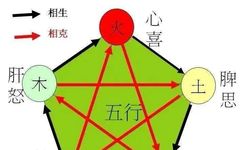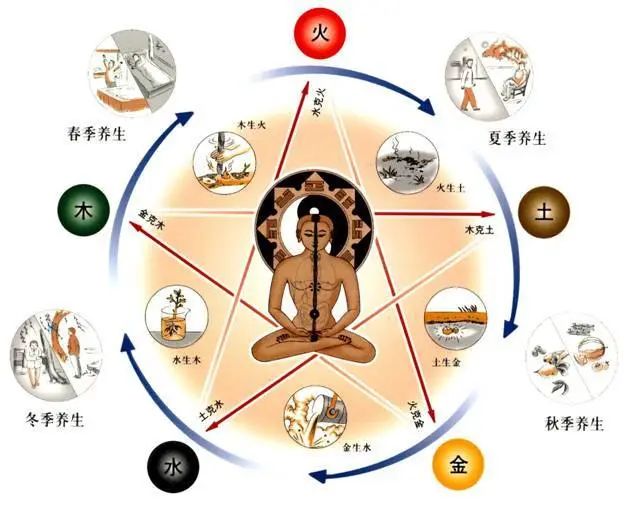
The mysterious culture of the Five Elements in China has influenced the Chinese people for thousands of years. Our joys and sorrows, emotions, and every aspect of life are imbued with the wisdom of the Five Elements!
The Heart Corresponds to Joy
“The Heart corresponds to joy” refers to the physiological functions and emotional states of the heart being related to “joy”. The Su Wen states: “Joy harmonizes the Qi and allows the will to be expressed, facilitating the flow of Ying and Wei (nutritive and defensive Qi).” The process of joy is akin to the release of energy in the human body (both mental and physical energy), and the released energy forms the original driving force, initiating new mental activities and governing bodily vitality, leading to new achievements.For example, it can enhance the vitality of the brain and the entire nervous system, fully utilize the body’s potential, improve the efficiency and endurance of mental and physical labor, and make life and work feel full of joy and confidence, resulting in movements that appear light, powerful, agile, accurate, and energetic; it can strengthen the muscular movements of the heart and blood vessels, accelerate blood circulation, and elevate metabolic levels; it can expand the lungs, enhance respiratory movements, increase lung capacity, and facilitate the exchange of carbon dioxide and oxygen; it can strengthen the movements of the digestive organs, increase the secretion of digestive fluids, thereby enhancing appetite, aiding digestion, and promoting metabolism.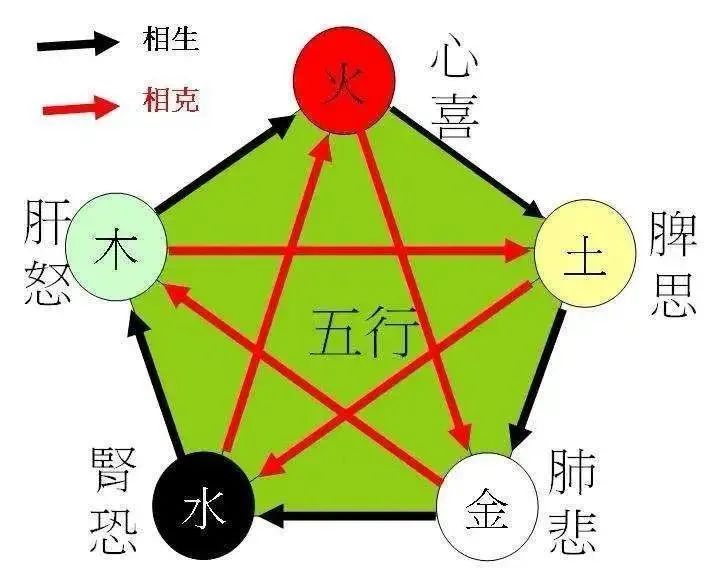
The Liver Corresponds to Anger
Anger is a strong emotional reaction to external stimuli and is considered a negative emotional stimulus. The relationship between anger and the liver is particularly close, hence the phrase “The Liver corresponds to anger”.On one hand, excessive anger can harm the liver, leading to abnormal Qi flow, hyperactivity of liver Qi, and blood surging with Qi, which can manifest as flushed face, irritability, and in severe cases, can lead to vomiting blood, nosebleeds, sudden fainting, or loss of consciousness. On the other hand, if the liver fails to regulate, it can also lead to emotional instability, manifesting as irritability and restlessness.
The Spleen Corresponds to Thought
The spleen corresponds to thought. Thought refers to the state of conscious mental activity. The emotional activities of a person’s thoughts are primarily expressed through the spleen.
Thought is a state of concentrated mental activity and deliberation. When a person is immersed in thought or anxiety, they often experience a lack of appetite and food becomes tasteless. Some women may experience reduced menstrual flow and irregular periods due to work stress and intense concentration, which aligns with the spleen’s function of regulating blood.
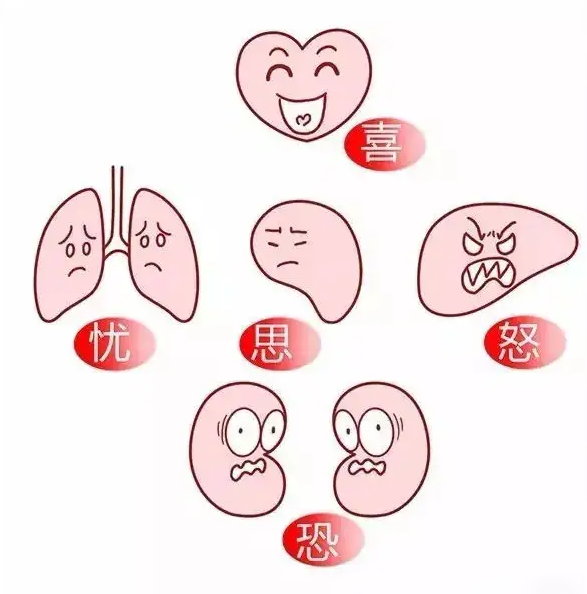
During the Kangxi era of the Qing Dynasty, there was a man named Lü Dazhong in a small town in Jiangnan, who was wealthy but had no descendants, as his family line was only passed down through one son. Lü Dazhong was extremely anxious and eager for grandchildren, so when his only son Lü Renwang turned eighteen, he arranged for him to marry one wife and two concubines, hoping that the Lü family would flourish with many descendants!
One day, Lü Renwang and several scholars from the town agreed to visit their teacher at the county school. However, by the time it was four in the morning, Lü Renwang had not yet returned, prompting Lü Dazhong to get up and search for his son.
Lü Dazhong searched all the way to the outskirts of the town. There was a large pond outside the town, behind which stood a Guandi temple. A faint light shone through the crack in the temple door, and upon listening closely, he could hear voices inside; among them was his son’s voice! Lü Dazhong hurried over and pushed open the slightly ajar temple door. Inside, the place was in disarray, with wine and food scattered everywhere, and several scholars were passionately discussing something.
After listening for a while, Lü Dazhong finally understood: In recent years, there had been numerous shocking cases of literary persecution across the country, causing scholars to feel anxious. Today, they had gone to the county school to visit their teacher and heard new bad news: a scholar named Xu Jun from Jiangnan was sentenced to death for having the lines “The clear wind does not recognize characters, why disturb the books” in his poetry collection, as the court deemed it slanderous. By the time they returned from the county town, it was already evening, and they had bought food and wine to come to the Guandi temple, first to burn incense and paper in the night to pay homage to the wronged literati, and then to drown their sorrows in wine. As they drank, someone suggested, “Since the Qing court is so brutal, why don’t we rebel against it!” Fueled by alcohol, everyone responded enthusiastically, and since Lü Dazhong was the richest man in town, they elected Lü Renwang as their leader.
Hearing this, Lü Dazhong was horrified and shouted, “Stop!” The scholars were startled, and when they saw it was Lü Dazhong, they all breathed a sigh of relief.
Lü Dazhong sighed and, drawing from his life experience and knowledge, advised them: “The recently fallen Ming Dynasty, with all its military and financial resources, found it difficult to resist the tiger-wolf army of the Qing. You, a few scholars, want to rebel? That would be like throwing eggs against a rock! Don’t let a few cups of wine cloud your judgment!”
The scholars ignored his advice, and Lü Dazhong had no choice but to pull his son: “Let’s not get involved in this nonsense. We already have wealth; when the grandchildren gather around, that will be the true joy of family!”
His son pushed him away, spitting out a mouthful of wine and boasting, “Don’t worry about me! I’d rather die heroically than live in humiliation!”
Lü Dazhong knew that once these scholars got stubborn, it would be impossible to pull them back. Since force wouldn’t work, he decided to use wisdom. He thought of a plan: “I say rebellion is doomed to fail, and you say it will succeed. Without evidence, we cannot reach a conclusion. So why not consult Lord Guan and see what his attitude is?”
The scholars believed that rebellion was a righteous act and that righteous acts would surely succeed and receive divine protection, so they said, “You just tell us how to consult!”
Lü Dazhong said, “Zhou Cang’s big knife is made of iron, weighing at least fifty or sixty pounds, right? Now, throw it into the pond. If it floats on the water for a while, that indicates the rebellion will succeed; you can go ahead and do it. If the iron knife sinks, it means the rebellion will fail, and you should not mention it again!”
Floating iron knife? Isn’t that a trick to fool a three-year-old? Yet these scholars all agreed. They were well-read and knew that many historical rebellions had omens, such as Chen Sheng and Wu Guang’s uprising, which was preceded by the omen of a fish belly hiding a book. Since a fish belly could hide a book, how could an iron knife not float?
Lü Dazhong secretly laughed; this group of scholars was drunk enough to be foolish enough to believe that an iron knife could float. He intended to use their drunken state to dissuade them from their rebellion plans as soon as possible.
By then, it was already bright, and many people had come to the outskirts of the town. They saw several scholars carrying Zhou Cang’s big knife to the edge of the pond, and they all gathered around, stretching their necks to see the spectacle.
Two scholars lifted the iron knife and simultaneously let go; the knife fell into the water, splashing everywhere. Sure enough, the iron knife sank immediately. Lü Dazhong smiled with satisfaction and went to pull his son.
Lü Renwang pushed him away again: “What are you pulling me for? Keep your eyes on the water!”
What’s so interesting about the water? Lü Dazhong was about to speak but could not open his mouth: in the blink of an eye, a miracle occurred—the iron knife actually floated back up, resting on the water’s surface!
The onlookers widened their eyes. The scholars couldn’t help but cheer and lift Lü Renwang high, shouting, “The iron knife floats, Lord Guan has shown his spirit, our rebellion will surely succeed!”
The iron knife floated on the water for a good while before slowly sinking again.
Lü Dazhong sat on the ground, muttering, “The iron knife really can float, what is going on?”
Lü Renwang, however, was extremely excited, pulling his father up and saying, “Quick, prepare some silver for us; we will act separately tomorrow!”
Unexpectedly, the government acted even faster than the scholars; that afternoon, the county magistrate led people to arrest Lü Renwang and several scholars. The Qing Dynasty was particularly sensitive to the term “rebellion,” with spies everywhere monitoring suspicious activities. The commotion of the iron knife floating was quickly reported to the authorities.
Seeing his son being taken away in a prisoner cart, Lü Dazhong stumbled over, kneeling in front of the county magistrate, scratching his chest with both hands and saying, “Your Honor, this cannot be blamed on my son; the iron knife floating is all my fault!”
The county magistrate, intrigued, asked, “You can make the iron knife float?” Lü Dazhong nodded repeatedly: “It’s not that I can make the iron knife float, but the floating of the iron knife is related to me!” He then recklessly revealed the shocking secret.
When Lü Dazhong was young, his family was poor, and he always dreamed of becoming wealthy and having many descendants. At the age of forty, the opportunity finally came. Lü Dazhong befriended a wealthy merchant, feigned hospitality to invite the merchant to his home, then drugged him in his wine, bound him with stones, and sank him in the pond in front of the Guandi temple. The money left by the merchant was used to buy land and open a shop, gradually making him a wealthy man in the town. However, after becoming rich, Lü Dazhong wanted to marry multiple wives and have many sons, but the fear from that murder left him unable to have children, so he could only place his hopes on his son…
Last night, in order to deter his son from rebelling, Lü Dazhong thought of this terrible idea. According to common sense, the iron knife should not float. However, he forgot that there was a wronged soul beneath the water, a ghost who died unjustly! That ghost used all its strength to support the knife; how could it not float?
Upon hearing this, a gust of north wind blew by, and the county magistrate felt a chill run down his spine, asking, “Is what you say true?”
Lü Dazhong replied, “It is all true. I conspired to kill that merchant, and that wronged ghost wants me to have no descendants! This matter can be hidden from people, but not from the divine; Your Honor can see it clearly. At this point, I feel so burdened that I can no longer hide it. I confess everything; whatever punishment you deem fit, I only ask that you spare my son.”
However, the county magistrate said, “Without evidence, it is difficult to determine guilt. We will wait for evidence before proceeding.” After that, he ordered some soldiers to drain the pond, and as the water level decreased, a skeleton was indeed revealed in the southwest corner of the pond.
The onlookers gasped in unison; Lord Guan was indeed effective, and the iron knife floating was to avenge this wronged ghost! The county magistrate then ordered Lü Dazhong to be arrested and sign a confession.
However, after the pond was drained, another miracle occurred right before everyone’s eyes: the iron knife that had been thrown in the morning had landed perfectly on the back of a turtle!
Seeing this, the county magistrate suddenly burst into laughter, pointing at the turtle and saying, “Everyone can see that this turtle, as big as a millstone, can carry a hundred pounds. This means that the so-called iron knife floating was not due to a ghost supporting it, nor was it Lord Guan showing his spirit, but rather the work of this turtle! Lü Dazhong confessed out of guilt and desperation to save his son! Therefore, I advise everyone not to do anything wrong, for you need not fear ghosts knocking at your door! As for Lü Renwang and his group of scholars, since they have shown intent to rebel against the court, no one can save them.”
Lü Dazhong and his son were both executed, and the Lü family’s line was completely extinguished.
The Lungs Correspond to Worry (Sadness)
Ancient physicians carefully observed and analyzed patients with worries and found that the lungs are the primary organ expressing human worries and sadness.When a person cries due to worry, tears flow abundantly; the tears are the mucus secreted by the lungs. When a person cries, the lung Qi is abundant, and mucus secretion increases, and since the lungs open to the nose, the tears flow from the nose. The lungs govern Qi and are the master of sound; thus, worry and sadness can also lead to hoarseness and rapid breathing.
The Kidneys Correspond to Fear
Fear corresponds to the kidneys; the kidneys are the main organs expressing fear. Fear is a mental state of being afraid of things, which is a negative stimulus to the physiological activities of the body. The Su Wen states: “Fear causes Qi to descend, and shock causes Qi to become chaotic.” This indicates that the stimulus of fear can have adverse effects on the movement of Qi in the body. “Fear causes Qi to descend” means that in a state of fear, the Qi in the upper jiao becomes blocked, which can lead to fullness in the lower jiao, and in severe cases, can cause incontinence. “Shock causes Qi to become chaotic” means that normal physiological activities can be temporarily disrupted due to panic, resulting in a state of confusion and indecision.
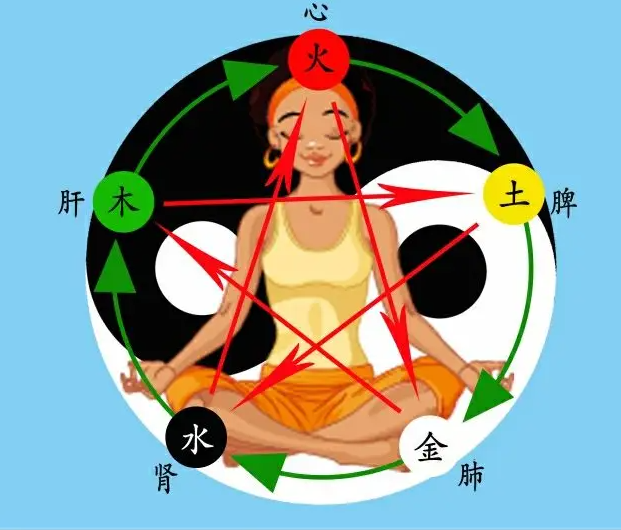
Space medicine in the human body believes that the traditional Chinese medicine theory of the Five Elements is not an abstract existence, but a synonym for the energy movement of the five internal organs. Due to the different shapes, positions, and physiological functions of the five organs, a relationship of mutual generation and mutual restraint is formed, completing the process of energy transformation in motion.
The energy movement of the five organs is holistic and involves a series of chain reactions.
First, the energy radiated from the kidney cell group moves upward, but is obstructed by the pressure of the energy radiated from the spleen and stomach cell group, causing it to move sideways.
The energy radiated from the kidney cell group and the energy radiated from the spleen and stomach cell group meet in space and undergo a transformation, changing into energy that is neither that of the kidney cell group nor that of the spleen cell group.
This new energy moves sideways, and during its movement, the energy further changes, altering the original pressure and intensity, gaining greater driving force, which pushes the liver cell group into motion, corresponding to the traditional Chinese medicine concept of “Water generates Wood”.
Traditional Chinese medicine holds that the generating element is the mother, and the restraining element is the father. In the process of “Water generating Wood”, “Water” is the mother, “Wood” is the child, and “Earth” is the father. If the energy radiated from the kidney cell group does not encounter the energy radiated from the spleen cell group, it cannot push the liver cell group into motion. It is precisely under the restraint of “Earth” that the energy undergoes transformation, producing greater impact force, thus generating “Wood”.
The energy radiated from the liver cell group moves upward, influenced by the energy radiated from the lung cell group, and is forced to move sideways in the sub-diaphragmatic space. During this movement, the energy radiated from the liver cell group and the energy radiated from the lung cell group undergo transformation, changing in nature, and greatly increasing in concentration and pressure. The new energy moves from the sub-diaphragmatic space to below the heart area, exerting a pushing effect on the heart area, hence the saying that “Wood can generate Fire”. In this movement, “Wood” is restrained by “Metal”.
The energy radiated from the heart cell group moves downward, influenced by the energy radiated from the kidney cell group moving upward, meaning “Water restrains Fire”. Its concentration and pressure change, and its nature changes, pushing the spleen area, thus “Fire can generate Earth”.
The energy radiated from the spleen cell group is restrained by the energy radiated from the liver cell group, meaning “Wood restrains Earth”, producing new energy. This energy moves upward through the diaphragm, pushing the lung cell group into motion, increasing the driving force of the lung cell group. Thus, “Earth can generate Metal”.
The energy radiated from the lung cell group is influenced by the energy radiated from the heart cell group, producing new energy that moves backward and outward, impacting the kidney cell group, improving the energy environment of the kidney cell group, meaning that lung “Metal” can generate kidney “Water”. In this process, “Metal” is restrained by “Fire”.
The energy circulates endlessly between the five organs of the human body, stimulating and pushing each other, flowing continuously; this is the operation of the Five Elements.

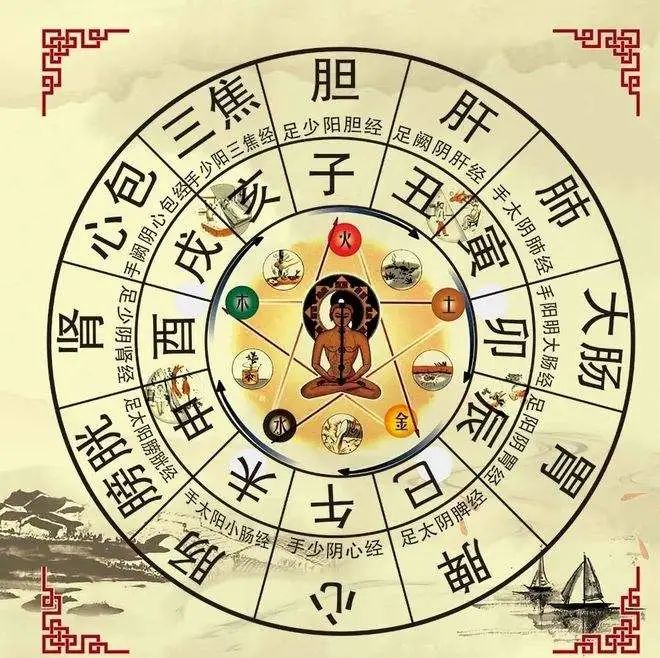
Deficiency of Metal in the Five Elements
Metal corresponds to the lungs and is related to respiratory diseases. Individuals with a deficiency of Metal in the Five Elements should pay attention to Qi deficiency, cough, dry skin, joint pain, dysentery, and blood in the stool, often experiencing difficulty in breathing and frequent colds. If the condition is severe, they may develop lung diseases. Symptoms such as shortness of breath, chest tightness, cough, wheezing, and low voice indicate the need to nourish the lungs. In autumn, it is beneficial to consume white foods to nourish the lungs.
Deficiency of Wood in the Five Elements
Wood corresponds to the liver and gallbladder. Individuals with a deficiency of Wood in the Five Elements often experience dizziness, blood and Qi imbalance, thinning hair, and neuralgia. If the condition is severe, they may suffer from liver and gallbladder diseases or leg injuries. Symptoms such as emotional irritability, anger, pain in the chest and ribs, and sudden decline in vision indicate the need to nourish the liver. The liver is sensitive to fatigue, and during its weakest time (1:00 PM – 5:00 PM), it is essential to rest. If work is necessary, take a break for at least 5 minutes every hour.
Deficiency of Water in the Five Elements
Water corresponds to the kidneys. Individuals with a deficiency of Water in the Five Elements are prone to nephritis, cerebral hemorrhage, myopia, and urinary system diseases. Symptoms such as soreness in the lower back and knees, edema, frequent urination, memory loss, susceptibility to colds, and unexplained hair loss indicate the need to nourish the kidneys. In winter, it is beneficial to consume black foods and regulate negative emotions. Additionally, during the weakest time of the kidneys (11:00 PM – 1:00 AM), avoid staying up late to maintain energy.
Deficiency of Fire in the Five Elements
Fire corresponds to the heart, which governs the blood vessels. Individuals with a deficiency of Fire in the Five Elements are prone to heart disease, septicemia, arthritis, beriberi, and eye diseases, especially in youth or middle age, often leading to gastrointestinal issues. Symptoms such as palpitations, chest tightness, insomnia, forgetfulness, irritability, and even pain in the precordial area indicate the need to nourish the heart. In summer, drinking carrot juice can help relieve fatigue. For mentally demanding work, utilize the midday time when heart energy is strongest; those with congenital heart weakness should sleep early.
Deficiency of Earth in the Five Elements
Earth corresponds to the spleen and stomach. Individuals with a deficiency of Earth in the Five Elements may have a yellowish complexion, reduced appetite, dislike of movement, and often experience edema, beriberi, and bad breath. If the condition is severe, they may suffer from digestive system and skin diseases. Symptoms such as abdominal distension, diarrhea, fatigue, shortness of breath, relaxed ligaments and muscles, and body edema indicate the need to nourish the spleen. Those with spleen deficiency can move lunch to 11:00 AM, as this is when the spleen is most effective at digesting food and absorbing nutrients; eating a sweet fruit an hour after dinner can help strengthen the spleen.
Spread the knowledge of TCM health preservation, promote Chinese traditional culture, share health concepts, and convey care, passing health knowledge and traditional culture to more friends…
People are great because they have dreams; we are different because we have love.
Liu Qingning: 186 9643 6785 or (WeChat ID)
Yang Shunsong: 138 7171 7447 or (WeChat ID)
